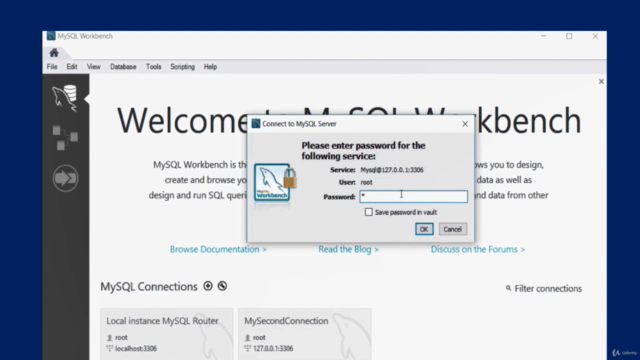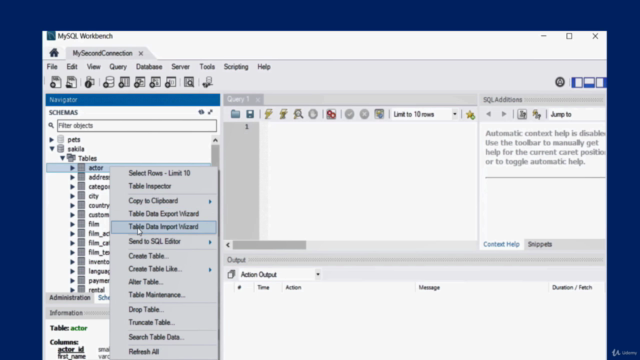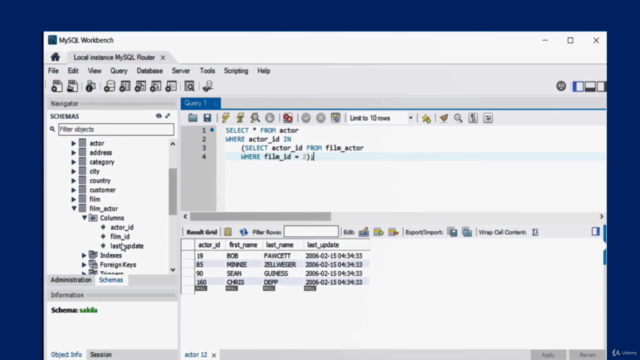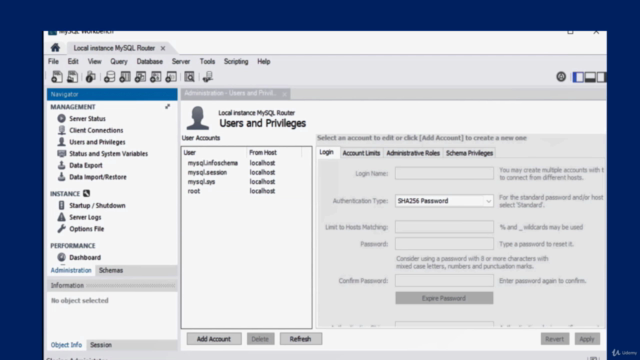MySQL Database Admin -DBA for Beginners

Why take this course?
🏫 Course Title: MySQL Database Admin - DBA for Beginners
🚀 Course Headline: Master Practical, Hands-On MySQL DBA Skills with This Comprehensive Course!
Dive into the World of Databases with MySQL!
Welcome to a journey into the realm of databases, where MySQL reigns supreme as the world's most popular open-source database. 🚀 This course is your golden ticket to not only understanding the basics of relational databases but also equipping yourself with the essential skills to effectively manage and administer a MySQL database.
Why Learn MySQL?
- Global Relevance: MySQL is used by millions around the world in various applications, from small startups to massive corporations.
- Versatility: Learning MySQL opens up opportunities across different sectors including e-commerce, social media platforms, and much more.
- Future-Proof Skill: Database Administrators (DBAs) are in high demand with a wide range of job prospects globally.
What Will You Learn?
- 🔧 Installation and Configuration of MySQL Server
- ⚙️ Creating Databases and Tables
- ✨ Database Views, Stored Procedures, and More
- 📊 Performing Aggregate Functions and Subqueries
- 🔐 Managing Users and Their Privileges
- 📋 Executing Backups and Restores
- 👀 Monitoring Client Connections and Server Status
- 🤝 Table Joins and Utilizing MySQL Workbench
- ✉️ Using the MySQL Command Line Client
- ✅ Executing Common MySQL Commands
- 📈 Querying Databases, Updating Records, and Deleting Data
Hands-On Practice:
Throughout this course, you'll engage in a series of hands-on activities to apply what you've learned. You'll:
- Set up your own MySQL server environment.
- Create and manipulate databases and tables.
- Write SQL queries to extract meaningful insights from data.
- Practice user management and secure access to data.
- Learn to back up and restore databases, ensuring data integrity.
Understanding SQL:
- What is SQL?
- Standard Language: SQL is a standardized language designed specifically for managing and manipulating data in relational databases.
- Versatility: It allows you to perform a wide range of tasks, from retrieving and updating records to managing user access.
- SQL's History:
- Standardization: SQL became an ANSI/ISO standard in the mid-1980s.
- Adaptability: Despite being standardized, SQL has evolved with different versions tailored to various database systems.
The Power of SQL:
- Query Execution: Retrieve and display data from a database.
- Data Manipulation: Insert, update, and delete records in the database.
- Database Creation: Build new databases and tables.
- Procedure Management: Create stored procedures to automate tasks.
- View Creation: Simplify complex queries with custom views.
- Access Control: Define permissions for different users and roles.
By the end of this course, you'll have a solid foundation in MySQL database administration, equipped with the practical skills to manage databases effectively and confidently. 🌟
Join us on this exciting learning adventure and become a proficient Database Administrator! Enroll now and take your first step towards mastering the MySQL database system!
Course Gallery




Loading charts...